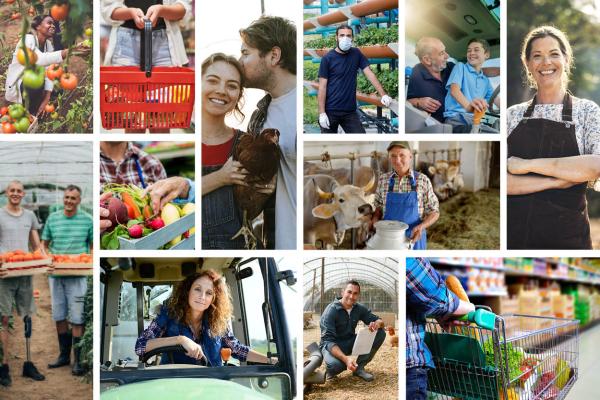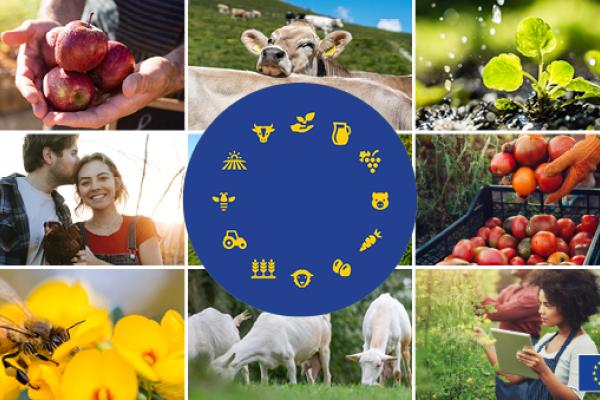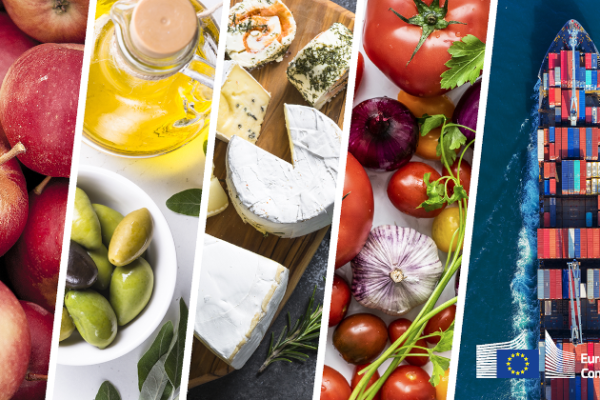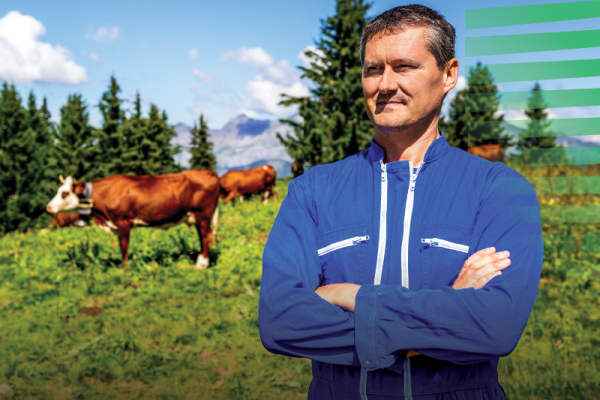The food supply chain has different levels of power. Although small companies make up most of the food industry and retail sectors, a few large companies acting as buyers dominate the market.
In contrast, with 9.1 million farms, the agricultural sector is highly fragmented. Farmers and other smaller businesses need to be protected when doing business. The EU’s policies are designed to ensure fair competition and curb any abusive practices by powerful companies.
Strengthening farmers’ bargaining power
The EU is committed to:
- strengthening farmers’ bargaining power
- address the current imbalances in the food chain
- reducing the risk of them being forced to sell below production costs.
It has already adopted measures to tackle these problems, exempting farmers from certain competition rules, to reflect the unique nature of their profession. And plans are under way to go even further, including:
- protecting farmers more in their contracts with buyers in the food industry and retailers
- strengthening producer organisations so farmers can work together more effectively when dealing with buyers and retailers.
More powerful producer organisations and cooperatives
The EU supports producer organisations and cooperatives to strengthen farmers’ bargaining power and negotiate fairer terms with buyers. Between 2023 and 2027, some 760 000 of EU farms (or 8% of all farms) will receive support to:
- join producer groups and organisations
- sell directly to buyers
- participate in quality schemes.
Banning unfair trading practices
In 2019, the EU adopted legislation to ban 16 unfair trading practices that could harm farmers’ interests and small and medium–sized suppliers. The main objective of this legislation on unfair trading practices (UTP) in the food supply chain sets out rules to ensure fair and transparent commercial relationships throughout the agri-food supply chain, with the primary objective of is to balance addressing power imbalances and promoting fairness in trade. Every EU country has appointed a body to enforce these new EU rules.
As a result, EU countries have ended up giving more protection to farmers than the legislation requires, banning even more trading practices. These fairer trading practices make farming safer and more effective, and it’s easier for farmers to file complaints.
Considering that at least 20% of agricultural and food products consumed in any given EU country come from another EU country, the EU is proposing additional rules to allow authorities in one country to enforce the rules in another. As enforcement strengthens, farmers and smaller suppliers will benefit from increased protection. However, not enough people in the sector know about these EU rules. The Commission will look at how well the legislation is working in 2025 and may suggest new rules if required.
Increasing transparency
In April 2024, the EU launched the EU Agri-food Chain Observatory to improve transparency around prices, costs and profits. The Observatory has up to 80 members representing:
- public authorities in agriculture, fisheries, aquaculture and the food supply chain
- organisations from different parts of the chain, such as farmers, suppliers, the food industry, traders, transport, logistics, retail and consumers.
Building trust between public authorities and everyone else involved is essential to ensure everyone is paid fairly for their work in the food supply chain.

- News article
The report on the implementation of the Directive on unfair trading practices in the food supply chain was one of the Commission’s commitments to strengthen the position of farmers in the food supply chain.
Disclaimer: the text of this publication is for information purposes only and is not legally binding.
Related links
More information
The European Commission strengthens farmers' position in the food supply chain.
The European Union's policy on producer and interbranch organisations.
The EU reviewed certain provisions of the common agricultural policy (CAP) aiming for more flexibility, and more compatibility with farming realities.
Launched in January 2024, the Strategic Dialogue on the future of EU agriculture is a new forum shaping a shared vision for EU's farming.
Governing of the agri-food supply chain, how to strengthen farmers' position in the supply chain.
More facts on the EU's farming policy

Food for Europe podcast

The Food for Europe podcast is a European podcast series on food and farming, featuring interviews with key players in European agricultural policy.



